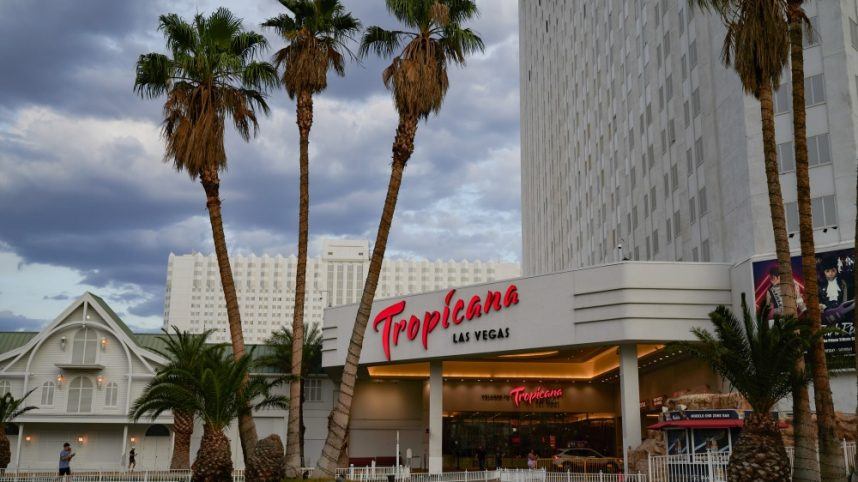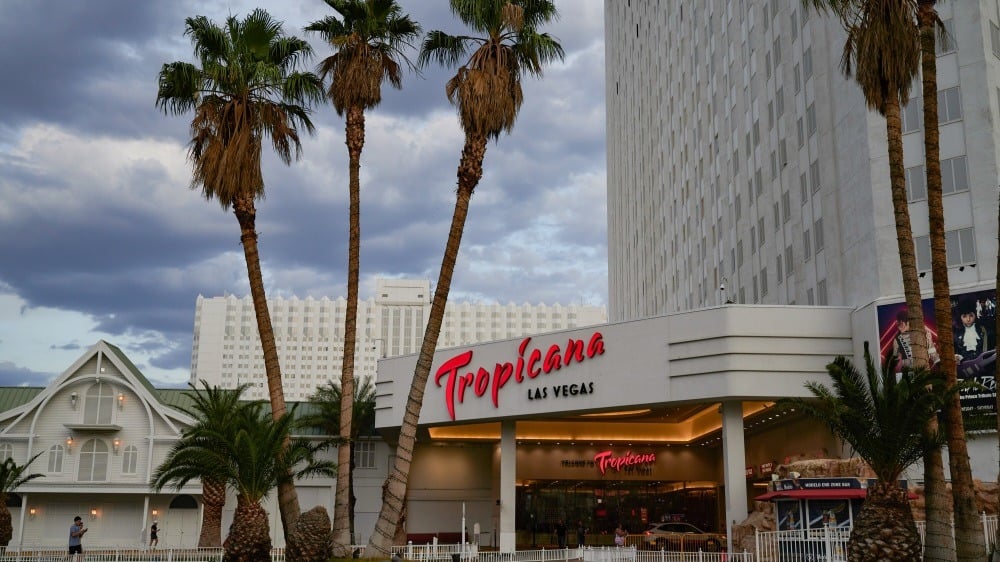Posted on: July 15, 2024, 05:40h.
Last updated on: July 15, 2024, 05:40h.
Last Friday, Bally’s (NYSE: BALY) unveiled a broad agreement with Gaming and Leisure Properties (NASDAQ: GLPI) under which the real estate investment trust (REIT) will provide much-needed financing for the gaming company’s permanent Chicago casino. At least one analyst believes the accord could be instructive regarding how Bally’s proceeds in Las Vegas.

In a note to clients, Truist Securities analyst Barry Jonas said the Chicago deal between Bally’s and GLPI could act as a playbook for how the operator moves forward with its operating rights on the shuttered Tropicana Las Vegas. GLPI owns the real estate at that site.
If this Gaming and Leisure-owned, Bally’s-operated Chicago structure succeeds, we could see this being a template for developments on the Tropicana Las Vegas site,” opined Jonas.
Tropicana closed in April and is scheduled to be demolished in October. The land previously occupied by the casino hotel is intended to become a $1.5 billion baseball stadium for the Oakland Athletics (A’s), but there are currently more questions than answers regarding the team’s ability to execute the move to Las Vegas.
How Bally’s, GLPI Could Apply Chicago Deal in Las Vegas
As things stand today at the Tropicana, GLPI owns the real estate, Bally’s controls the gaming rights, and the operator is paying $10.5 million in annual rent to the REIT.
Jonas didn’t get into the mechanics of exactly how GLPI could assist Bally’s in Las Vegas, but using the Chicago agreement as a potential template, the landlord could, in the future, provide the gaming company with the financing needed to develop a new casino resort at that site. That would also likely include a rent escalator.
For its part, Bally’s said earlier this year it’s not rushing Tropicana redevelopment plans and that could be a pragmatic approach because financing for Las Vegas plans or any other expansion efforts by Bally’s would likely be expensive. In Chicago, GLPI will “fund construction hard costs of up to $940 million at an 8.5% initial cash yield.”
Some Bally’s shareholders have suggested that the operator sell its operating rights on the Tropicana because there would likely be an extensive list of bidders, particularly if the A’s move is scrapped, and because the seller could use that capital to reduce its hefty debt burden.
GLPI Has Chicago Options if Bally’s Defaults
Bally’s sports junk credit ratings as a result of a debt/earnings before interest, taxes, depreciation, and amortization (EBITDA) above 7.5x. Should the operator default on its Chicago obligations, Jonas believes GLPI could rapidly find a replacement.
“In a downside case where BALY has to exit Chicago, we believe there would be demand from other well-established operators to take over at comparable terms,” added the analyst.
Hard Rock International and Rush Street Gaming were the other contenders for the lone Chicago casino license. Regarding GLPI, the REIT is seen as having the financial resources to pull off the Chicago financing as well as paying $395 million to Bally’s for the real estate of Kansas City and Shreveport, La. gaming venues.
“We recently cited GLPI’s underlevered balance sheet and they should have some funding flexibility for these transactions, benefiting from an improving capital market environment,” concluded Jonas.



